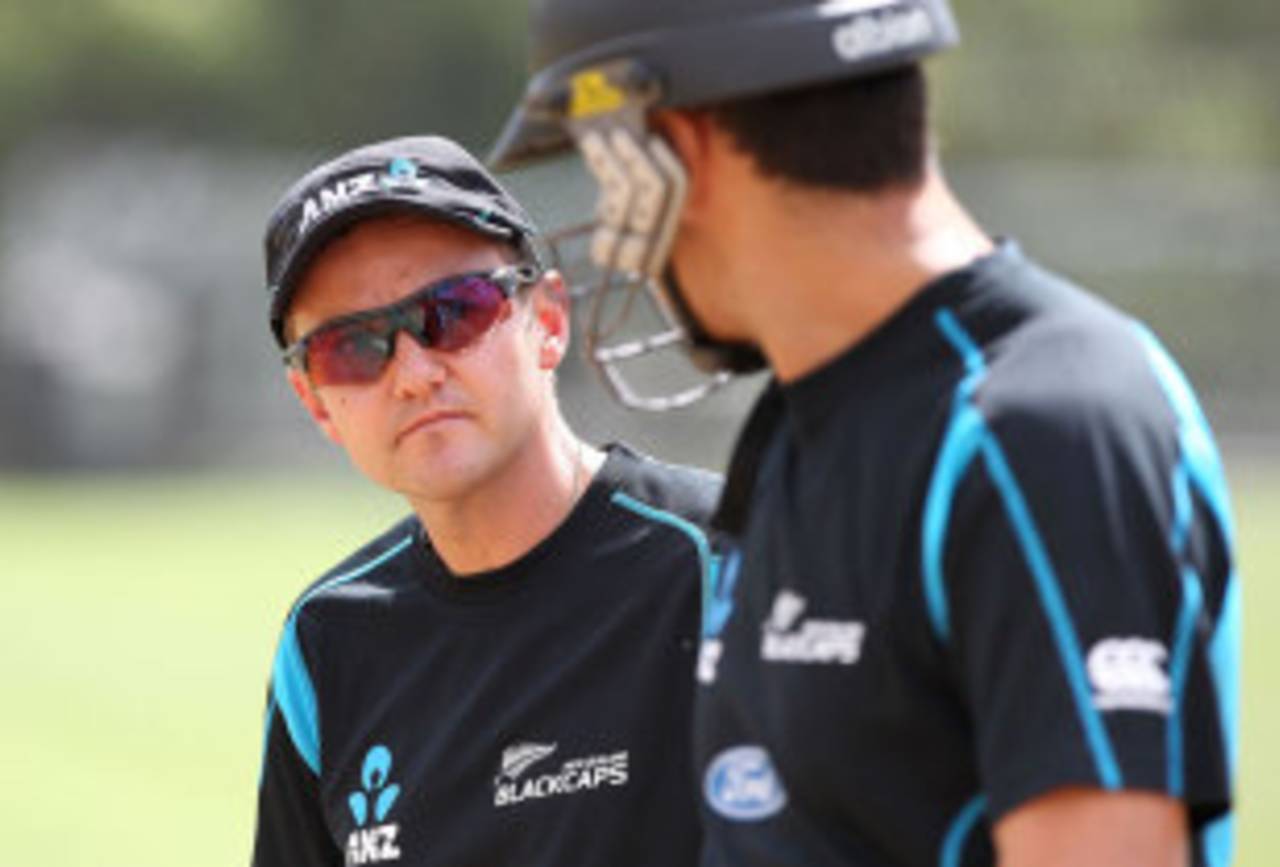Turn the bickering into good governance
John Parker's document on New Zealand cricket might be controversial, but you cannot fault the sentiment behind it
Andrew Alderson
07-Apr-2013

The fallout that occurred after Ross Taylor was sacked as captain should not be repeated, says Parker • Getty Images
The squabbling between New Zealand Cricket and the John Parker-led group seeking better governance brings to mind the Beatles' tune "A Day In the Life". You know, the one with the orchestral crescendos that keep rising until they become unbearable.
The difference between the NZC situation and the Sgt Pepper's Lonely Hearts Club Band album track is that you can quickly flick to a more appropriate tune with the latter. In the circumstances, "Fixing A Hole" or "With A Little Help From My Friends" on the same album might suit. Anything NZC-related never seems as simple.
Fortunately, the team appears to be largely removed from the current stoush. Next month's England tour, where the home media spotlight will reduce, should help gel rather than fracture the unit. That's provided Ross Taylor and coach Mike Hesson can work towards a more civil rather than rancorous professional arrangement.
New Zealand does not have a mortgage on cricket bickering. It's a worldwide by-product of a game between individuals which masquerades as team sport. To get to the top in cricket you have to be more selfish than selfless. Ego and one-upmanship tend to be integral to its operation.
The catalyst for the present situation was the Taylor captaincy saga. The decision and process to remove him as captain has divided former players, administrators and the general public since December. Just when the wound appeared to be healing, after New Zealand's performance exceeded expectations in the drawn Test series against England, it became re-infected last week.
Parker revealed a 77-bullet point document on radio that questioned decisions and circumstances overseen by NZC in recent months, most of which related to the Taylor ousting. Some of the allegations subsequently featured on a Facebook page. Many news agencies have not published the details out of concern some of the claims would be difficult to substantiate if they went to court. At least two prominent New Zealand cricket identities have already consulted lawyers after being named in the material.
According to an NZC media release, the Parker document: "consists of hearsay, speculation and rumour and appears to concentrate almost entirely on attempting to re-litigate the issues surrounding the replacement of Ross Taylor as Black Caps captain".
On Thursday, in the same statement, chief executive David White said: "The allegations raised by John Parker and the anonymous group of critics are divisive, untrue and reflect poorly on them rather than the players they have wrongly attacked."
Whether they are or not might require a judge to decide, but regardless, there is no lack of passion (some might argue fury) in Parker's movement for change at NZC, particularly at board level. The Taylor incident was the final straw that resulted in the collaboration of a veritable who's who of those involved in the New Zealand game. They include ex-captains, coaches, players, selectors and even media who share correspondence. Former players Ian Smith and Mark Greatbatch are the latest to offer solidarity to Parker.
Parker wants the focus to shift from the captaincy saga: "This was not meant to be a Ross Taylor v Brendon McCullum issue. It's wider than that. That [the captaincy change] was just meant to be an example of poor governance. We're focusing on the revamped constitution [NZC is due to release it this week] and the appointment of good board members."
Parker's movement is frustrated by a lack of former internationals on the board since Stephen Boock became president and Rob Hart resigned. CEO White attends meetings and has Test and ODI experience, but is not an official board member. Parker's movement is working through the country's six major associations to drive change.
"We want to see people with specific skills there, rather than generalists. There's no doubt the incumbents are enthusiastic cricket people but we want at least two members to be ex-internationals with a leadership and governance background. They will understand the inner workings of New Zealand teams and how to best plan itineraries. We're keen to have those skills identified in the constitution. Candidates will apply for a place and go through a process which will eventually be voted on by MAs and district associations.
"Complicating matters is that everything in the garden looks rosy with a strong performance against England. However, what happened with Ross Taylor's captaincy and the subsequent fallout cannot be allowed to occur again.
Parker, 62, played 36 Tests for New Zealand and captained the side in one Test against Pakistan in 1976. He was a Radio New Zealand commentator for nine years, head of Sport Waikato for 12 years and has run his own sports consultancy company, the SMT Group, since 1997.
"I'm the messenger and we all know what happens to them," Parker said drily last month. "But that's fine as long as we get a better result. We want a constitution agreed to by the MAs and then a couple of months later there will be a meeting to elect a new board."
One change could see the board made up of six elected and two appointed members rather than the current eight elected positions.
Once a new board is established (and if the team's performances keep improving) the unbearable crescendo might go away. That will indeed be a welcome day in the life of New Zealand fans.
Andrew Alderson is cricket writer at New Zealand's Herald on Sunday